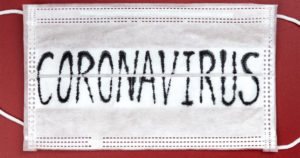More Than 1,200 Workers in South Dakota Meat Packing Plant Test Positive for COVID-19
October 23, 2020 After nearly 1,300 workers in a South Dakota meat packing plant tested positive for COVID-19 and at least four died, the CDC investigated and found that workers who had to work in close quarters with one another were more likely to contract the virus than ones who were able to abide by federal social distancing guidelines. While the CDC’s findings are not surprising, they do illustrate just how critical it is that employers maintain social distancing standards to protect at-risk workers like meat packers, who already face several other industry-related hazards.
After nearly 1,300 workers in a South Dakota meat packing plant tested positive for COVID-19 and at least four died, the CDC investigated and found that workers who had to work in close quarters with one another were more likely to contract the virus than ones who were able to abide by federal social distancing guidelines. While the CDC’s findings are not surprising, they do illustrate just how critical it is that employers maintain social distancing standards to protect at-risk workers like meat packers, who already face several other industry-related hazards.
How Thousands of Workers Are Infected
The outbreak is currently one of the largest in the country, though another even larger one just occurred at a California meat packing plant. Pennsylvania is no exception, either. Across the state, workers at 22 different meatpacking plants have fallen ill with COVID-19. Workers have reported unsafe conditions at some of the facilities.
According to the CDC’s investigation, approximately two-thirds of the cases occurred across just three departments in the South Dakota facility: cutting, conversion, and harvesting. In all three of these departments, employees worked within six feet of each other due to job and performance requirements. The agency’s investigation also showed how a variation in pay and position even further compounded workplace health and safety issues for employees. For instance, administrative workers in salaried positions were better able to distance and protect themselves against transmission than hourly workers on the production line.
Not only did nearly 1,300 workers at the meat packing plant get infected, but they also infected at least 210 of their other non-workplace contacts, like friends and family members. Although COVID-19 generally presents with mild-to-moderate symptoms like fever, shortness of breath, cough, and muscle or body aches, it can also cause serious and deadly complications. People with chronic medical conditions such as lung disease, heart disease, asthma, and diabetes face higher risks for severe symptoms. According to the Bureau of Labor Statistics (BLS), meatpacking is already one of the most dangerous jobs. These tragic outbreaks serve as just two examples of the additional risks that meat packers are coming into contact with during the pandemic.
One might wonder why workers who are simply showing up for their jobs and trying to support their loved ones are being forced to confront these dangerous and deadly risks. In many cases, preventable safety failures on the job result from negligent employers who refuse to prioritize the health and safety of hardworking employees. In this case, the Department of Labor fined the South Dakota plant $13,000 for its failure to implement effective engineering and control measures to mitigate known COVID-19 hazards – but for the workers who unnecessarily lost their lives and the grieving members they left behind, the small financial penalty is certainly too little too late.
Safety Tips and Control Measures for Preventing Infection
Not only are employers responsible for providing a workplace free from recognizable hazards, but they are also responsible for providing additional safeguards to limit COVID-19 transmission and infection rates. The meatpacking plant confirmed its first case of the virus on March 24th. Just one month later, there were more than 920 cases and still no meaningful protections in place. The law requires employers to maintain successful safety programs for a reason: they save lives. Just a few examples of steps that employers need to take to protect meatpacking plant workers include:
- Engineering controls, such as installing physical barriers or partitions to limit contact. Increase the space between workers as much as possible
- Administrative controls. One useful administrative control is to cohort employees, or to keep the same employees working together in small groups in case anyone becomes ill. This way if someone is positive for COVID-19, the cohort makes it easier to determine who else is at risk and limits transmission across large numbers of staff members in addition to their outside contacts
- Screen workers for infection. Workers should self-monitor for symptoms and should stay home if they are feeling unwell. Isolate workers who present with symptoms during the workday from others immediately. Clean and sanitize their workspace
- Personal protective equipment and hygiene. All employees should wear face coverings, wash or sanitize their hands frequently, and wear any other necessary personal protective equipment, or PPE
Filing a Workers’ Compensation Claim
People’s lives change when they experience a major illness like COVID-19. In many cases, not only do individuals miss substantial time from work when they fall ill but they also accrue overwhelming medical bills and other expenses. If you work in a meatpacking plant and you contracted COVID-19 due to your employer’s failure to uphold safety and health programs, someone at our firm can help you file a workers’ compensation claim. Workers’ compensation is a type of insurance that provides wage replacement and medical benefits to injured or ill workers. To learn more, contact a representative online now.
Philadelphia Workers’ Compensation Lawyers at Galfand Berger, LLP Represent Injured Workers
Galfand Berger has offices located in Philadelphia, Bethlehem, Lancaster, and Reading, we serve clients throughout Pennsylvania and New Jersey. To schedule a consultation, call us at 800-222-8792 or complete our online contact form.
 Google Screened
Google Screened
